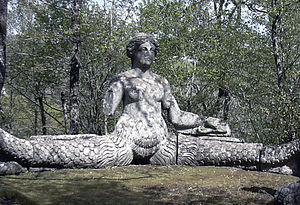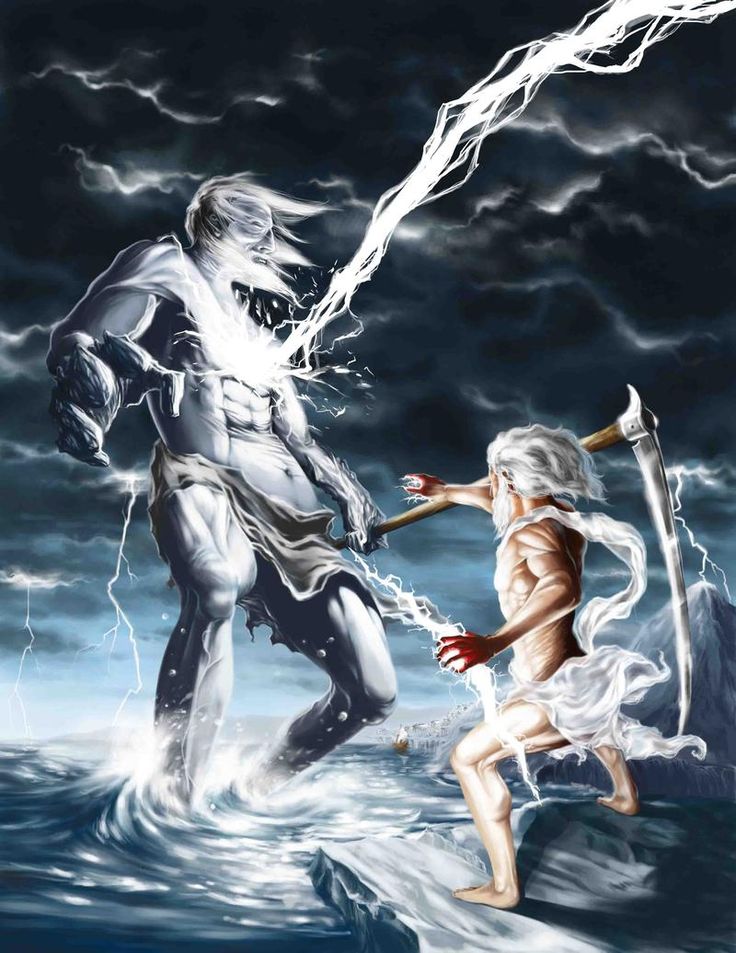Classical Mythology Eigth Edition Nyc
Posted : admin On 01.10.2019
Pygmalion is a legendary figure of Cyprus. Though Pygmalion is the Greek version of the Phoenician royal name Pumayyaton,notes 1 he is most familiar from Ovid's narrative poem Metamorphoses, in which Pygmalion was a sculptor who fell in love with a statue he had carved. In Ovid's narrative. “State of Wonder,” Patchett's eighth book and sixth novel, is no less. It's a task straight out of classical mythology: bring back the head of the.
In, Nauplius (: Ναύπλιος, 'Seafarer') is the name of one (or more) mariner heroes. Whether these should be considered to be the same person, or two or possibly three distinct persons, is not entirely clear. The most famous Nauplius, was the father of, called Nauplius the Wrecker, because he caused the Greek fleet, sailing home from the, to shipwreck, in revenge for the unjust killing of Palamedes. This Nauplius was also involved in the stories of, the mother of and, and, the mother of. The mythographer says he was the same as the Nauplius who was the son of. Nauplius was also the name of one of the, and although Apollonius of Rhodes made the Argonaut a direct descendant of the son of Poseidon, the Roman mythographer makes them the same person.
However, no surviving ancient source identifies the Argonaut with the father of Palamedes. The sea god fathered a son Nauplius, by, daughter of. This Nauplius was reputed to have been the eponymous founder of (modern ) in, and a famous navigator who discovered the constellation (Great Bear). Apollonius of Rhodes says that he was the ancestor of an Argonaut with the same name, via the lineage: Nauplius -Lernus -Clytoneus - Nauplius.
According to, he was the father of, and through him, the grandfather of, and the great-grandfather of. He was renowned as an expert seafarer, and possibly the inventor of seafaring as a practice; a harbor equipped by him to function as a port was said to have been named in his honor. Nauplius, father of PalamedesNauplius, also called 'Nauplius the Wrecker', was a king of, and the father of. According to, the son of Poseidon and Amymone, and the father of Palamedes are one person who 'lived to a great age'. Apollodorus reports that, in the ( Returns), an early epic from the of poems about the, Nauplius' wife was, and that according to his wife was, but that according to the 'tragic poets' his wife was. In addition to Palamedes, Nauplius had two other sons, Oiax and Nausimedon.There are three prominent stories associated with this Nauplius.
Two of these stories involve Nauplius being called upon by two kings to dispose of their unwanted daughters. Nauplius was also the name of one of the, who was one of those who volunteered to steer the after ' death. According to Apollonius of Rhodes, he was the son of Clytonaeus and a direct descendant of the son of Poseidon and Amymone, via the lineage: Nauplius – Proetus – Lernus – Naubolus – Clytoneus – Nauplius.
However, for, the son of Poseidon was the same person as the Argonaut. Although it would be more plausible for an Argonaut to be still alive at the time of the Trojan War, than for a son of Poseidon and Amymone, and therefore more plausible for the father of Palamedes to be the same as the Argonaut (rather than being the son of Poseidon), no surviving ancient source identifies the Argonaut with the father of Palamedes. Hard,; March,. For these treated as three distinct figures, for example, see Smith,. Grimal, s.v.

302.,.,., 14.11 (Smith and Trzaskoma, ). Hard,; Tripp, s.v. Nauplius (1)., p. 4 Fowler, apud schol. 4.1091 = 3 F 4 (Gantz, pp. 207–208; Fowler 2013, Fowler 2007, p.
277);,;,;, 14 (Smith and Trzaskoma, ), 169 and 169A (Smith and Trzaskoma, ). Hard,;,; compare with Strabo,. Mooney,.,. Smith,; Grimal, s.v. 4 Fowler, apud schol. 4.1091 = 3 F 4 (Fowler 2013, Fowler 2007, p.
For a translation of fr. 10 Fowler, which contains fr. 4 Fowler, see Trzaskoma, Smith, and Brunet, p. 354.
Scholia on, 54. See for example, Tripp, s.v.

Nauplius (1)., p. 390; Hard,; March,.,. Because of the great length of time involved, some scholars have concluded that Apollodorus has 'confused' two different figures, see for example Grimal, s.v. Nauplius, pp. 302–303; however many treat the two as the same person: March, pp.
–; Hard,; Gantz, p. 604; Parada, s.v. Nauplius I, p. 124; Tripp, s.v. Hard, suggests that perhaps, as was the case with Zeus' son, Nauplius' long life was a 'privilege granted to him by his divine father'. Hard,; Gantz, p. 604;,;,.
Hard,; Gantz, p. 271; Euripides' treatment of the story is according to the scholiast on 1297, citing Euripides' lost play Cretan Women ( Kressai), see Collard and Cropp (2008a), Jebb's note to Ajax, Webster,.
Euripides, Cretan Women ( Kressai) fr. 466 (Collard and Cropp (2008a) ): 'Am I to kill your child as a favour to you?' , is probably Nauplius addressing Catreus about Aerope. Gantz, pp.
554–555;,: αὐτὸς δὲ μητρὸς ἐξέφυς Κρήσσης, ἐφ᾽ ᾗ / λαβὼν ἐπακτὸν ἄνδρ᾽ ὁ φιτύσας πατὴρ / ἐφῆκεν ἐλλοῖς ἰχθύσιν διαφθοράν, which: 'And you yourself were born from a Cretan mother, whose father i.e. Catreus found a stranger straddling her and who was consigned by him to be prey for the mute fish' (see also Jebb's notes to lines,), but which instead translates: 'And you yourself are the son of a Cretan mother, whom your father i.e. Atreus, finding a lover with her, sent to be destroyed by dumb fishes.' .
Hard,; Gantz, p. 271;,. Hard,; Gantz, 428–431. Lloyd-Jones,; Jebb, Headlam and Pearson,. Gantz, pp.
428–429; Jebb, Headlam and Pearson,., Odysseus 15 (Garagin and Woodruff, );,;,., says Auge was given to Nuaplius to be sold, and says to be killed., Odysseus 16 (Garagin and Woodruff, ); compare with, where Nauplius gives Auge to 'some Carians' who ultimately give her to Teuthras, and, where Nauplius gives her directly to Teuthras. In other accounts of the story, Aleus put Auge and Telephus to sea in a wooden chest and cast them adrift, see, and,. Hard,; Gantz, pp. There were various versions of how Palamedes was killed, see for, example,. Gantz, pp.
606–607. Hard,;,. Hard, pp.
–; Gantz, pp. 695–697;,;, Alexandra ( Cassandra) 384–386 (Mair, ), 1093–1098 (Mair, );,;, 116, 249 (Smith and Trzaskoma, pp. 136, 172);, 557–570 , 658–659 ;,;, Argonautica 1.370–372 (Mozley, );,;,., 116 (Smith and Trzaskoma, p. 136). Hard,; Gantz, pp. 607–608, 697–698;, Alexandra ( Cassandra) 1093–1098 (Mair, ), 1216–1224 (Mair, );,., without mention of the sons' names. Gantz, pp.
607–608., Quaestiones Graecae,. Gantz, p. 697;. Gantz, p. 695;,; Sommerstein,. Gantz, p.
Isbn 13 978 0 321 96704 6
696; Hard,;,;. Sommerstein,. For Aeschylus: Sommerstein,; Sophocles:,; Euripides: Collard and Cropp (2008b),. Gantz, p. 696; Hard,;,., Gantz, pp. 607–608.
Gantz, pp. 606, 607; Sommerstein,;, Palamedes fr. 181 (Sommerstein, )., fr. 432 Radt (, ); Gantz, p. 604.
Hard,;, fr. 588a Kannicht (Collard and Cropp (2008b), ) = Scholia on,. Aristophanes, Thesmophoriazusae, ridicules such an implausible means of communication. Collard and Cropp (2008b),.
Wright,. Wright,. Mair. Hard,; Tripp, s.v. Nauplius (1), p. 390;,;, 14.11 (Smith and Trzaskoma, );, Argonautica 1.370–372 (Mozley, ).,;, Argonautica 5.63–64 (Mozley, ).,., 14.11 (Smith and Trzaskoma, ).
Hard,; Tripp, s.v. Nauplius (1), p.